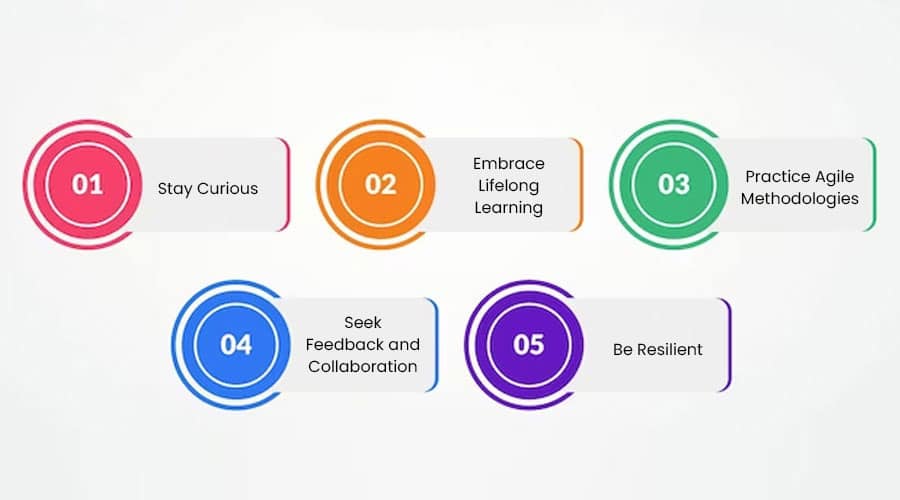Table of Contents
Understanding Kotlin: A Prerequisite for Hiring
In today’s ever-evolving technological landscape, staying ahead of the curve is not just a competitive advantage; it’s a necessity. With the rapid advancement of mobile and web application development, companies are constantly on the lookout for skilled developers who can navigate through the complexities of modern programming languages. One such language that has been gaining significant traction in recent years is Kotlin.
Understanding Kotlin isn’t just an option anymore; it’s becoming a prerequisite for companies looking to hire top talent in the software development industry. Let’s delve deeper into why mastering Kotlin is crucial for both developers and hiring managers alike.
The Rise of Kotlin: Originally introduced by JetBrains in 2011, Kotlin has rapidly emerged as a powerful, statically typed programming language for modern applications. Its seamless interoperability with Java, concise syntax, and robust type inference have made it a favorite among developers worldwide.
Compatibility with Java: One of Kotlin’s standout features is its seamless compatibility with Java. This means that developers can leverage existing Java libraries, frameworks, and tools while gradually transitioning to Kotlin. For companies with large codebases written in Java, adopting Kotlin allows for smoother integration and maintenance, without the need for a complete rewrite.
Concise Syntax: Kotlin’s concise syntax allows developers to write cleaner and more expressive code with fewer boilerplate elements. Features like data classes, extension functions, and lambda expressions enable developers to achieve more with less code, resulting in improved productivity and readability.
Null Safety: NullPointerExceptions (NPEs) are a common source of bugs in Java applications. Kotlin addresses this issue with its built-in null safety features, which help developers avoid null pointer errors at compile time. By making nullability explicit in the type system, Kotlin encourages developers to write safer and more robust code, reducing the likelihood of runtime exceptions.
Coroutines for Asynchronous Programming: In today’s asynchronous and event-driven world, handling concurrent tasks efficiently is essential. Kotlin’s first-class support for coroutines simplifies asynchronous programming by providing a lightweight and structured approach to concurrency. Coroutines enable developers to write non-blocking, asynchronous code in a sequential manner, making complex asynchronous workflows easier to manage and reason about.
Enhanced Developer Experience: Beyond its technical capabilities, Kotlin offers an enhanced developer experience that can significantly impact a company’s hiring strategy. Developers who are proficient in Kotlin tend to be more productive and satisfied with their work, leading to higher retention rates and lower recruitment costs for organizations.
Key Skills to Look for in Kotlin Developers

In today’s rapidly evolving tech landscape, finding proficient Kotlin developers can be a game-changer for your project’s success. Kotlin, being one of the most popular programming languages for Android app development, demands a specific set of skills and expertise. Whether you’re hiring in-house or outsourcing, identifying the key skills in Kotlin developers is crucial. Here’s a comprehensive guide to help you navigate through the essential qualities to look for:
- Proficiency in Kotlin: It goes without saying that a Kotlin developer should have a strong command of the language itself. They should be adept at writing clean, concise, and efficient code using Kotlin’s features such as null safety, extension functions, coroutines, and more.
- Understanding of Object-Oriented Programming (OOP) Principles: Kotlin is an object-oriented language, so developers should have a solid understanding of OOP principles like inheritance, encapsulation, and polymorphism. This knowledge is vital for writing maintainable and scalable code.
- Experience with Android Development: Since Kotlin is widely used for Android app development, familiarity with Android SDK and Android Studio is a must. Developers should be capable of building user-friendly and efficient Android applications using Kotlin.
- Knowledge of Java: Although Kotlin is interoperable with Java, having a good understanding of Java can be beneficial. Developers should be able to read and understand Java code as well as seamlessly integrate Kotlin with existing Java projects.
- Problem-Solving Skills: Exceptional Kotlin developers possess strong problem-solving skills. They should be able to analyze complex problems, break them down into smaller tasks, and come up with effective solutions efficiently.
- Understanding of Asynchronous Programming: Asynchronous programming is essential for developing responsive and scalable applications. Kotlin developers should be familiar with concepts like coroutines and asynchronous programming patterns to handle tasks such as network calls and database operations effectively.
- Knowledge of Design Patterns: Proficiency in design patterns such as MVVM (Model-View-ViewModel), MVP (Model-View-Presenter), and Clean Architecture is crucial for writing maintainable and testable code. Kotlin developers should understand when and how to apply these patterns appropriately.
- Testing Skills: Writing unit tests and conducting test-driven development (TDD) is integral to ensuring the quality and reliability of software. Kotlin developers should be proficient in writing unit tests using frameworks like JUnit and Mockito.
- Continuous Learning Attitude: The tech industry is constantly evolving, and Kotlin developers should be willing to keep up with the latest updates and best practices. A continuous learning attitude demonstrates a developer’s commitment to their craft and ensures that they stay relevant in the ever-changing landscape of technology.
- Communication and Collaboration: Effective communication and collaboration skills are essential for working in a team environment. Kotlin developers should be able to articulate their ideas clearly, collaborate with other team members, and actively participate in discussions and code reviews.
Assessing Kotlin Proficiency: What to Look for
In the ever-evolving landscape of programming languages, Kotlin has emerged as a powerful contender, especially in the realm of Android app development. Its concise syntax, interoperability with Java, and strong safety features have made it a favorite among developers worldwide. As the demand for Kotlin proficiency continues to rise, it becomes essential for businesses and recruiters to accurately assess the skills of potential candidates. So, what exactly should you look for when evaluating Kotlin proficiency?
- Understanding of Kotlin Basics: The first step in assessing Kotlin proficiency is to ensure that the candidate has a solid grasp of the language’s fundamentals. This includes knowledge of basic syntax, data types, control flow structures, and functions. Candidates should be comfortable writing simple Kotlin programs and understanding how different language features work together.
- Experience with Kotlin Features: Beyond the basics, proficient Kotlin developers should be familiar with advanced language features and concepts. This includes things like extension functions, higher-order functions, null safety, coroutines, and data classes. An understanding of these features demonstrates a deeper level of expertise and an ability to leverage Kotlin’s full potential.
- Interoperability with Java: One of Kotlin’s key strengths is its seamless interoperability with Java. Candidates should be able to work with existing Java codebases, call Java libraries from Kotlin, and vice versa. An understanding of how Kotlin integrates with Java is essential for developers working on Android projects or in environments where Java is still prevalent.
- Experience with Kotlin Frameworks and Libraries: Proficient Kotlin developers should have hands-on experience with popular Kotlin frameworks and libraries used in Android development, such as Ktor, kotlinx.serialization, and Room. Familiarity with these tools demonstrates not only Kotlin proficiency but also practical experience in building real-world applications.
- Problem-Solving Skills: Assessing Kotlin proficiency goes beyond just knowing the language syntax. Candidates should also demonstrate strong problem-solving skills and the ability to apply Kotlin concepts to solve real-world problems efficiently. Look for candidates who can write clean, maintainable code and who understand best practices for software development.
- Understanding of Kotlin Performance and Best Practices: A proficient Kotlin developer should be aware of performance considerations and best practices specific to the language. This includes things like optimizing Kotlin code for performance, understanding the impact of Kotlin features on app size and startup time, and following coding conventions and style guidelines.
- Continuous Learning and Growth: Finally, look for candidates who demonstrate a commitment to continuous learning and growth in their Kotlin skills. The programming landscape is constantly evolving, and developers need to stay updated with the latest Kotlin features, best practices, and industry trends.
Experience Matters: Gauging Kotlin Development Experience

In today’s rapidly evolving tech landscape, the demand for skilled Kotlin developers is soaring. As businesses across various industries embrace Kotlin for its versatility and efficiency, the need for experienced professionals in this programming language becomes increasingly vital. In this article, we’ll delve into the significance of experience when it comes to Kotlin development and how businesses can effectively gauge the expertise of Kotlin developers.
Understanding Kotlin’s Rise
Kotlin, introduced by JetBrains in 2011, has swiftly emerged as a favorite among developers for its concise syntax, interoperability with Java, and robust tooling support. Its adoption has surged in recent years, propelled by its official support for Android development and its suitability for building backend systems, web applications, and more. As Kotlin continues to gain traction, the demand for skilled Kotlin developers has become more pronounced.
Why Experience Matters
- Efficiency and Productivity: Experienced Kotlin developers possess a deep understanding of the language’s nuances and best practices. This familiarity translates into streamlined development processes, shorter time-to-market, and higher-quality code. They can leverage Kotlin’s features effectively, such as null safety, extension functions, and coroutines, to write clean, concise, and maintainable code.
- Problem-solving Skills: With experience comes the ability to tackle complex challenges adeptly. Seasoned Kotlin developers have encountered a myriad of scenarios during their tenure, honing their problem-solving skills along the way. Whether it’s optimizing performance, debugging intricate issues, or architecting scalable solutions, their wealth of experience equips them to navigate hurdles with confidence.
- Code Optimization and Performance: Proficient Kotlin developers possess a keen eye for optimization. They understand the intricacies of the JVM and can write code that not only functions correctly but also performs optimally. Through experience, they acquire insights into optimizing memory usage, minimizing overhead, and maximizing efficiency, thereby enhancing the overall performance of Kotlin applications.
- Adaptability and Flexibility: The tech landscape is dynamic, with new tools, libraries, and frameworks continually emerging. Experienced Kotlin developers exhibit adaptability, staying abreast of industry trends and evolving their skill sets accordingly. They can seamlessly integrate new technologies into their workflow, ensuring that the applications they build remain relevant and competitive in the ever-changing market.
Gauging Kotlin Development Experience
When evaluating Kotlin development experience, several factors come into play:
- Project Portfolio: Assessing a developer’s past projects provides valuable insights into their proficiency with Kotlin. Look for projects that align with your requirements in terms of complexity, scale, and industry domain. Pay attention to the developer’s role in each project and the specific Kotlin features and techniques they employed.
- Technical Interviews: Conducting technical interviews tailored to Kotlin can help gauge a developer’s depth of understanding. Pose questions that delve into language fundamentals, common pitfalls, performance optimization strategies, and best practices. Practical coding exercises or code reviews can further elucidate the candidate’s expertise.
- Community Involvement: Active participation in the Kotlin community signifies a developer’s commitment to continuous learning and knowledge sharing. Look for contributions to open-source projects, attendance at Kotlin-related events and meetups, or engagement on online forums and platforms like GitHub and Stack Overflow.
- References and Recommendations: Seek feedback from previous employers, colleagues, or clients who have worked with the developer. Their testimonials can provide valuable insights into the candidate’s professionalism, technical proficiency, and contribution to project success.
Kotlin Developer Portfolios: Evaluating Past Projects
In the rapidly evolving landscape of software development, Kotlin has emerged as a formidable force, captivating developers with its concise syntax, interoperability, and robustness. As Kotlin gains prominence, so does the significance of evaluating Kotlin developer portfolios to discern their expertise, creativity, and problem-solving acumen. In this article, we embark on a journey to unravel the essence of Kotlin developer portfolios and delve into the process of assessing past projects with a discerning eye.
- Diverse Project Showcase: The hallmark of a stellar Kotlin developer portfolio lies in its diversity. A rich repertoire of projects spanning various domains showcases the developer’s versatility and adaptability. From mobile applications to web development, from backend systems to data processing tools, each project offers a unique insight into the developer’s prowess in harnessing Kotlin to address real-world challenges.
- Code Quality and Structure: Beyond the surface allure of polished interfaces and seamless functionality, the crux of a Kotlin project lies in its codebase. An astute evaluation of a developer’s portfolio involves scrutinizing the code quality, adherence to best practices, and the overall architectural design. Clean, well-structured code not only enhances readability but also facilitates maintainability and scalability, underscoring the developer’s commitment to excellence.
- Innovative Problem Solving: Great Kotlin developers are adept problem solvers who thrive on challenges. A compelling portfolio not only showcases the ability to implement standard solutions but also highlights the developer’s knack for innovation. Whether it’s devising efficient algorithms, optimizing performance, or integrating cutting-edge technologies, innovative problem-solving prowess sets exemplary developers apart from the rest.
- User Experience and Design Aesthetics: In today’s user-centric digital landscape, user experience (UX) and design aesthetics play a pivotal role in the success of software projects. A meticulous evaluation of Kotlin developer portfolios encompasses an assessment of the intuitive UX design, seamless navigation, and aesthetic appeal of the projects. Attention to detail, empathetic design choices, and a focus on usability resonate with discerning users and underscore the developer’s dedication to crafting exceptional experiences.
- Collaboration and Version Control: Software development is inherently collaborative, and effective collaboration skills are paramount in a Kotlin developer’s arsenal. A holistic evaluation of portfolios involves examining the developer’s proficiency in version control systems like Git, collaborative workflows, and contributions to open-source projects. Clear documentation, informative commit messages, and a history of collaborative endeavors reflect a developer’s ability to thrive in team environments and contribute meaningfully to collective success.
Effective Communication Skills: Collaborating with Kotlin Developers

In the ever-evolving landscape of software development, effective communication stands as the cornerstone of successful collaboration, particularly when working with Kotlin developers. Kotlin, with its concise syntax and interoperability with Java, has gained immense popularity among developers worldwide. To ensure smooth collaboration and maximize productivity, mastering effective communication skills is imperative.
Understanding Kotlin Development
Before delving into communication strategies, it’s essential to have a basic understanding of Kotlin development. Kotlin is a statically-typed programming language that runs on the Java Virtual Machine (JVM). It offers features like null safety, extension functions, and coroutines, making it a robust choice for building Android, server-side, and web applications.
Importance of Effective Communication
Clear and concise communication is vital in any collaborative endeavor, but it holds particular significance in software development projects involving Kotlin. Miscommunication or lack thereof can lead to misunderstandings, delays, and ultimately, project failures. Effective communication fosters alignment, promotes transparency, and enhances teamwork, thereby driving the project towards success.
Strategies for Effective Communication
- Establish Clear Objectives: Clearly define project goals, timelines, and deliverables at the outset. Ensure that both parties have a shared understanding of the project scope and objectives to avoid ambiguity.
- Regular Meetings: Schedule regular meetings, whether daily stand-ups or weekly check-ins, to discuss progress, address challenges, and synchronize efforts. Utilize video conferencing tools for face-to-face interaction, fostering a sense of connection despite physical distances.
- Active Listening: Actively listen to Kotlin developers’ insights, concerns, and suggestions. Encourage an open dialogue where team members feel heard and valued. Pay attention to non-verbal cues to grasp underlying sentiments.
- Utilize Collaboration Tools: Leverage collaboration tools like Slack, Microsoft Teams, or Discord for real-time communication and file sharing. Create dedicated channels for discussing Kotlin-specific topics, sharing code snippets, and resolving issues promptly.
- Document Everything: Maintain comprehensive documentation detailing project requirements, design decisions, and coding conventions. This serves as a reference point for Kotlin developers and ensures continuity in case of personnel changes.
- Provide Constructive Feedback: Offer constructive feedback on code reviews, highlighting areas for improvement while acknowledging accomplishments. Foster a culture of continuous learning and growth, where feedback is viewed as an opportunity for development.
- Cultural Sensitivity: Respect cultural differences and nuances, especially in globally distributed teams. Be mindful of language barriers, time zone disparities, and cultural norms to foster inclusivity and collaboration.
- Encourage Collaboration: Foster a collaborative environment where Kotlin developers feel empowered to share ideas, propose solutions, and collaborate cross-functionally. Celebrate successes collectively and learn from setbacks as a team.
Agile Mindset: Essential for Kotlin Development Teams
In the fast-paced world of software development, where technology evolves at lightning speed, adaptability is the name of the game. Enter the Agile mindset—a philosophy that has revolutionized the way teams approach project management and collaboration. For Kotlin development teams, embracing this Agile mindset isn’t just beneficial; it’s essential for staying competitive and delivering high-quality products efficiently.
Agile methodology is built on the principles of flexibility, collaboration, and continuous improvement. It encourages teams to break down complex projects into smaller, manageable tasks known as “sprints.” Each sprint typically lasts a few weeks and focuses on delivering a functional, incremental piece of the final product. This iterative approach allows teams to gather feedback early and adjust their course as needed, ensuring that the end result meets the evolving needs of stakeholders.
So, what does this mean for Kotlin development teams specifically? Let’s explore why an Agile mindset is crucial for success in Kotlin projects:
- Adaptability in a Dynamic Environment: Kotlin, known for its interoperability with Java and concise syntax, is a versatile language used for developing a wide range of applications, from mobile apps to server-side applications. However, the tech landscape is constantly evolving, with new libraries, frameworks, and best practices emerging regularly. An Agile mindset equips Kotlin teams to adapt to these changes swiftly, incorporating new tools and techniques into their development process to stay ahead of the curve.
- Collaborative Problem-Solving: One of the core principles of Agile is prioritizing individuals and interactions over processes and tools. This emphasis on collaboration fosters a culture of open communication and teamwork within Kotlin development teams. By breaking down silos and encouraging cross-functional collaboration, team members can leverage their diverse skills and perspectives to solve problems creatively and efficiently.
- Iterative Development and Feedback Loops: Kotlin developers often face complex challenges when building software solutions. The Agile approach enables teams to tackle these challenges incrementally, delivering working software at the end of each sprint. This iterative development process allows for early and frequent feedback from stakeholders, helping to identify potential issues and refine the product before it’s too late. By continuously iterating and improving, Kotlin teams can ensure that they’re delivering value to their users with each release.
- Embracing Change: In the world of software development, change is inevitable. Whether it’s shifting market demands, evolving user requirements, or unexpected technical hurdles, Kotlin teams must be prepared to adapt quickly. An Agile mindset teaches teams to embrace change as an opportunity for growth rather than a setback. By remaining flexible and responsive to change, Kotlin development teams can navigate challenges with confidence and deliver solutions that meet the needs of their users effectively.
Test-Driven Development (TDD): A Must for Kotlin Developers

In the ever-evolving landscape of programming languages, Kotlin has emerged as a prominent player, gaining traction among developers worldwide. Since its inception by JetBrains in 2011, Kotlin has grown into a mature language, celebrated for its conciseness, versatility, and seamless interoperability with Java. However, beyond its syntax and features lies a rich ecosystem that significantly influences its adoption and effectiveness in various domains.
Understanding the Importance:
The Kotlin ecosystem encompasses a vast array of tools, frameworks, libraries, and community resources designed to enhance productivity, streamline development workflows, and foster collaboration. Familiarity with this ecosystem is crucial for developers aiming to leverage Kotlin to its fullest potential. Here’s why:
- Increased Efficiency: Kotlin’s ecosystem offers a plethora of libraries and tools tailored to specific use cases, enabling developers to expedite development without reinventing the wheel. Whether it’s managing asynchronous operations, building user interfaces, or accessing platform-specific APIs, there’s a Kotlin solution available.
- Interoperability: Kotlin’s seamless interoperability with Java expands its ecosystem’s reach by allowing developers to leverage existing Java libraries and frameworks effortlessly. This interoperability not only accelerates migration efforts but also provides access to a vast repository of Java-based tools, ensuring compatibility and flexibility.
- Community Support: The strength of Kotlin’s ecosystem lies in its vibrant community, comprising enthusiasts, contributors, and industry professionals. Community-driven initiatives such as forums, blogs, meetups, and open-source projects foster knowledge sharing, collaboration, and continuous improvement. Engaging with the community not only enriches one’s understanding of Kotlin but also provides invaluable insights and support.
Assessing the Ecosystem:
Assessing Kotlin’s ecosystem involves evaluating various factors to determine its suitability for specific projects or requirements. Here are key aspects to consider:
- Stability and Maturity: Evaluate the maturity and stability of Kotlin-related tools, frameworks, and libraries. Established projects with active maintenance and community support are generally preferred over newer, untested ones.
- Documentation and Resources: Adequate documentation and comprehensive resources are vital for seamless integration and troubleshooting. Assess the quality and availability of documentation, tutorials, and support channels associated with ecosystem components.
- Performance and Scalability: Consider the performance implications and scalability potential of ecosystem components, especially for projects with demanding performance requirements or anticipated growth.
- Community Engagement: Evaluate the level of community engagement and support surrounding ecosystem components. Active community participation indicates a vibrant ecosystem with ongoing development and support.
- Integration Capabilities: Assess the ease of integration with existing toolchains, frameworks, and infrastructure. Compatibility with popular development environments, build systems, and deployment platforms enhances workflow efficiency and reduces integration overhead.
- Industry Adoption: Consider the adoption trends and industry use cases of ecosystem components. Solutions endorsed by reputable organizations or widely adopted within relevant domains inspire confidence and mitigate risks.
Navigating the Kotlin ecosystem requires a strategic approach, informed by a blend of research, experimentation, and community engagement. By leveraging the diverse array of tools, libraries, and resources available within the Kotlin ecosystem, developers can unlock new opportunities, accelerate development cycles, and build robust, innovative solutions across diverse domains.
Familiarity with Kotlin’s Ecosystem: Importance and Assessment
In the ever-evolving landscape of programming languages, Kotlin has emerged as a prominent player, gaining traction among developers worldwide. Since its inception by JetBrains in 2011, Kotlin has grown into a mature language, celebrated for its conciseness, versatility, and seamless interoperability with Java. However, beyond its syntax and features lies a rich ecosystem that significantly influences its adoption and effectiveness in various domains.
Understanding the Importance:
The Kotlin ecosystem encompasses a vast array of tools, frameworks, libraries, and community resources designed to enhance productivity, streamline development workflows, and foster collaboration. Familiarity with this ecosystem is crucial for developers aiming to leverage Kotlin to its fullest potential. Here’s why:
- Increased Efficiency: Kotlin’s ecosystem offers a plethora of libraries and tools tailored to specific use cases, enabling developers to expedite development without reinventing the wheel. Whether it’s managing asynchronous operations, building user interfaces, or accessing platform-specific APIs, there’s a Kotlin solution available.
- Interoperability: Kotlin’s seamless interoperability with Java expands its ecosystem’s reach by allowing developers to leverage existing Java libraries and frameworks effortlessly. This interoperability not only accelerates migration efforts but also provides access to a vast repository of Java-based tools, ensuring compatibility and flexibility.
- Community Support: The strength of Kotlin’s ecosystem lies in its vibrant community, comprising enthusiasts, contributors, and industry professionals. Community-driven initiatives such as forums, blogs, meetups, and open-source projects foster knowledge sharing, collaboration, and continuous improvement. Engaging with the community not only enriches one’s understanding of Kotlin but also provides invaluable insights and support.
Assessing the Ecosystem:
Assessing Kotlin’s ecosystem involves evaluating various factors to determine its suitability for specific projects or requirements. Here are key aspects to consider:
- Stability and Maturity: Evaluate the maturity and stability of Kotlin-related tools, frameworks, and libraries. Established projects with active maintenance and community support are generally preferred over newer, untested ones.
- Documentation and Resources: Adequate documentation and comprehensive resources are vital for seamless integration and troubleshooting. Assess the quality and availability of documentation, tutorials, and support channels associated with ecosystem components.
- Performance and Scalability: Consider the performance implications and scalability potential of ecosystem components, especially for projects with demanding performance requirements or anticipated growth.
- Community Engagement: Evaluate the level of community engagement and support surrounding ecosystem components. Active community participation indicates a vibrant ecosystem with ongoing development and support.
- Integration Capabilities: Assess the ease of integration with existing toolchains, frameworks, and infrastructure. Compatibility with popular development environments, build systems, and deployment platforms enhances workflow efficiency and reduces integration overhead.
- Industry Adoption: Consider the adoption trends and industry use cases of ecosystem components. Solutions endorsed by reputable organizations or widely adopted within relevant domains inspire confidence and mitigate risks.
Navigating the Kotlin ecosystem requires a strategic approach, informed by a blend of research, experimentation, and community engagement. By leveraging the diverse array of tools, libraries, and resources available within the Kotlin ecosystem, developers can unlock new opportunities, accelerate development cycles, and build robust, innovative solutions across diverse domains.
Adaptability to Change: Essential Trait for Kotlin Developers

In the ever-evolving landscape of software development, adaptability isn’t just a desirable trait; it’s an essential one. For Kotlin developers, mastering adaptability isn’t just about keeping pace with technological advancements; it’s about thriving in a dynamic environment where change is constant. In this article, we’ll delve into why adaptability is crucial for Kotlin developers and how they can cultivate this trait to excel in their craft.
Understanding Kotlin’s Rising Popularity
Kotlin, a statically-typed programming language for modern multi-platform applications, has witnessed a meteoric rise in popularity since its inception. Known for its concise syntax, interoperability with Java, and robust safety features, Kotlin has become the go-to choice for Android app development and beyond. However, its rapid evolution and widespread adoption mean that Kotlin developers must stay nimble to navigate the ever-shifting landscape of software development.
Why Adaptability Matters
In the realm of software development, change is the only constant. New libraries, frameworks, and methodologies emerge regularly, challenging developers to adapt quickly or risk falling behind. For Kotlin developers, adaptability goes beyond merely learning new features of the language; it involves embracing new paradigms, architectures, and best practices.
Adaptability is especially critical in Kotlin development due to its versatility. Kotlin isn’t confined to a single platform or use case; it’s used in a myriad of applications, from mobile apps to backend services to web development. This diversity requires Kotlin developers to be adept at switching between different contexts and technologies seamlessly.
Moreover, Kotlin itself is continuously evolving, with frequent updates and enhancements introduced by JetBrains, the language’s creator. Developers who can adapt to these changes quickly can leverage the latest features and optimizations, enhancing their productivity and the quality of their code.
Cultivating Adaptability as a Kotlin Developer
Developing adaptability isn’t something that happens overnight; it’s a skill that requires deliberate effort and practice. Here are some strategies Kotlin developers can employ to cultivate adaptability:

- Stay Curious: Keep abreast of the latest developments in Kotlin and the broader software development ecosystem. Attend conferences, participate in online communities, and engage with fellow developers to stay informed about emerging trends and technologies.
- Embrace Lifelong Learning: Adopt a growth mindset and approach every challenge as an opportunity to learn and improve. Invest time in continuous learning, whether it’s through online courses, tutorials, or hands-on experimentation.
- Practice Agile Methodologies: Agile methodologies, such as Scrum and Kanban, emphasize flexibility, collaboration, and iterative development. By embracing Agile principles, Kotlin developers can adapt to changing requirements and deliver value to stakeholders more effectively.
- Seek Feedback and Collaboration: Don’t hesitate to seek feedback from peers, mentors, and users. Collaborating with others not only fosters innovation but also exposes developers to diverse perspectives and approaches, enhancing their adaptability.
- Be Resilient: In a fast-paced industry like software development, setbacks and failures are inevitable. Cultivate resilience by viewing setbacks as learning opportunities and maintaining a positive attitude in the face of adversity.
Top Hire Kotlin Developers Companies
In the ever-evolving landscape of app development, Kotlin has emerged as a powerhouse programming language, favored by developers and companies alike for its efficiency, reliability, and seamless integration with existing Java codebases. With its concise syntax and robust features, Kotlin has quickly become a go-to choice for building Android, web, and server-side applications. As demand for Kotlin expertise continues to soar, companies around the globe are seeking top talent to drive their projects forward. Here’s a look at some of the leading companies known for hiring top-tier Kotlin developers:
-
-
Next Big Technology:

Focus Area
- Mobile App Development
- App Designing (UI/UX)
- Software Development
- Web Development
- AR & VR Development
- Big Data & BI
- Cloud Computing Services
- DevOps
- E-commerce Development
Industries Focus
- Art, Entertainment & Music
- Business Services
- Consumer Products
- Designing
- Education
- Financial & Payments
- Gaming
- Government
- Healthcare & Medical
- Hospitality
- Information Technology
- Legal & Compliance
- Manufacturing
- Media
-
- Google: With Android being the primary platform for Kotlin adoption, it’s no surprise that Google, the mastermind behind Android, values Kotlin expertise. Google has been actively promoting Kotlin as a first-class language for Android development, and Kotlin developers can find ample opportunities to contribute to cutting-edge projects within the Google ecosystem.
- Netflix: Known for its innovative approach to streaming technology, Netflix has embraced Kotlin for its backend services. The company has been vocal about its positive experiences with Kotlin, citing increased productivity and code maintainability. Kotlin developers at Netflix have the opportunity to work on high-impact projects that shape the future of entertainment technology.
- Square: As a fintech company that revolutionizes the way businesses accept payments, Square relies on Kotlin to power its mobile and backend systems. Square’s commitment to Kotlin is evident in its open-source contributions, including popular libraries like Retrofit and OkHttp. Kotlin developers at Square play a pivotal role in shaping the next generation of financial technology solutions.
- Uber: In the competitive landscape of ride-sharing and transportation, Uber has leveraged Kotlin to enhance the performance and reliability of its mobile apps. Kotlin developers at Uber work on mission-critical systems that handle millions of transactions daily, pushing the boundaries of what’s possible in the realm of real-time, scalable applications.
- Pinterest: With its focus on visual discovery and inspiration, Pinterest relies on Kotlin to deliver an immersive user experience across platforms. Kotlin developers at Pinterest collaborate on projects that blend creativity with cutting-edge technology, shaping the way users discover and interact with content online.
- Square Enix: As a renowned game development company, Square Enix recognizes the potential of Kotlin in game development. Kotlin developers at Square Enix have the opportunity to work on beloved franchises and groundbreaking new titles, leveraging Kotlin’s versatility to create immersive gaming experiences for players worldwide.
- Amazon: With its vast array of services and products, Amazon provides a fertile ground for Kotlin developers to innovate and create impactful solutions. Whether it’s optimizing backend processes or enhancing the customer shopping experience, Kotlin developers at Amazon have the opportunity to make a meaningful impact at scale.
- Microsoft: As a technology giant with a diverse portfolio of products and services, Microsoft has embraced Kotlin for various projects, including mobile app development and cloud services. Kotlin developers at Microsoft collaborate on cross-platform initiatives that span devices and platforms, driving innovation across the Microsoft ecosystem.
- Adobe: Known for its creative software solutions, Adobe has adopted Kotlin to power its mobile apps and creative tools. Kotlin developers at Adobe work on projects that empower creatives worldwide, pushing the boundaries of digital innovation in design, photography, and multimedia.
FAQs On Hire Kotlin Developers
In the tech-savvy world of app development, Kotlin has emerged as a leading programming language, offering a plethora of advantages for building robust and scalable applications. As businesses seek to harness the power of Kotlin, questions naturally arise about hiring developers proficient in this language. Here’s your comprehensive guide to FAQs on hiring Kotlin developers.
1. What is Kotlin? Kotlin is a modern programming language developed by JetBrains, the creators of IntelliJ IDEA. It is designed to be fully interoperable with Java, making it an excellent choice for Android app development. Kotlin offers concise syntax, null safety, and other features that enhance developer productivity.
2. Why Hire Kotlin Developers? Hiring Kotlin developers brings several benefits to the table. Firstly, Kotlin’s compatibility with Java allows developers to seamlessly integrate Kotlin code into existing Java projects. Additionally, Kotlin’s concise syntax reduces boilerplate code, leading to faster development cycles. Moreover, Kotlin’s null safety features help prevent common runtime errors, improving overall code quality.
3. Where Can I Find Kotlin Developers? You can find Kotlin developers through various channels. Job boards, such as LinkedIn, Indeed, and Stack Overflow Jobs, often feature listings for Kotlin developers. Additionally, freelancing platforms like Upwork and Toptal allow you to hire Kotlin developers on a project basis. Networking events, conferences, and online communities dedicated to Kotlin are also great places to connect with talented developers.
4. What Skills Should I Look for in a Kotlin Developer? When hiring Kotlin developers, look for candidates with a strong understanding of object-oriented programming principles and experience with Java development. Proficiency in Kotlin-specific features like extension functions, coroutines, and DSLs (Domain-Specific Languages) is also desirable. Furthermore, candidates with experience building Android applications using Kotlin are particularly valuable.
5. How Can I Assess the Proficiency of Kotlin Developers? To assess the proficiency of Kotlin developers, consider using a combination of technical interviews, coding assessments, and portfolio reviews. During technical interviews, ask candidates to solve coding challenges or discuss their approach to solving real-world problems. Coding assessments can help evaluate candidates’ coding skills, while reviewing their portfolio provides insights into their past projects and code quality.
6. What Are the Rates for Hiring Kotlin Developers? The rates for hiring Kotlin developers vary depending on factors such as experience, location, and project requirements. Junior Kotlin developers typically charge lower rates compared to senior developers with extensive experience. Rates may also vary based on whether you hire developers on a full-time, part-time, or contract basis. It’s essential to consider these factors when budgeting for hiring Kotlin developers.
7. How Can I Ensure a Successful Collaboration with Kotlin Developers? To ensure a successful collaboration with Kotlin developers, establish clear communication channels and project goals from the outset. Provide developers with access to necessary resources, such as documentation, development tools, and support channels. Foster a collaborative and inclusive work environment where developers feel empowered to share ideas and raise concerns. Regularly review progress and provide constructive feedback to keep the project on track.
Thanks for reading our post “Hire Kotlin Developers”. Please connect with us to learn more about Best Hire Kotlin Developers.










